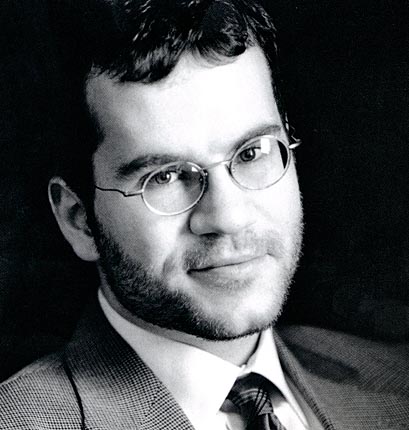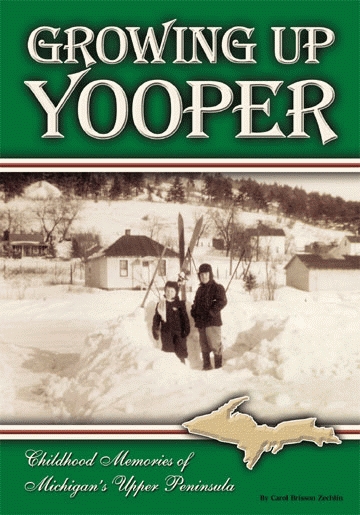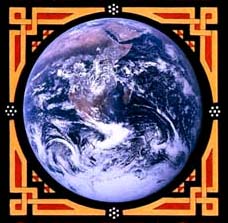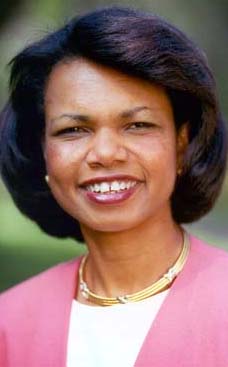2006.03.15: March 15, 2006: Headlines: Figures: COS - Uzbekistan: Writing - Uzbekistan: The Crimson: ‘Yooper’ Tom Bissell leaves Michigan To Write About Central Asia
Peace Corps Online:
Directory:
Uzbekistan:
Special Report: Uzbekistan RPCV and Author Tom Bissell:
Tom Bissell: Newest Stories:
2006.03.15: March 15, 2006: Headlines: Figures: COS - Uzbekistan: Writing - Uzbekistan: The Crimson: ‘Yooper’ Tom Bissell leaves Michigan To Write About Central Asia
‘Yooper’ Tom Bissell leaves Michigan To Write About Central Asia

Bissell agrees that his Upper Peninsula roots have an influence on his writing. “Most of my characters are people who have a background in a place that’s small and they’re in a situation now that is often much more than they can handle,” he says. “That’s the big theme of most of the stories in this collection: people realizing how out of their depth they are, and . . . for people who come from small towns, I think that’s a feeling you get hit an awful lot with when you’re in your twenties and late teens,” Bissell says. Author Tom Bissell served as a Peace Corps Volunteer in Uzbekistan.
‘Yooper’ Tom Bissell leaves Michigan To Write About Central Asia
‘Yooper’ Leaves Michigan To Write About Central Asia
Bissell writes about small town characters lost in big, exotic locations
Published On Wednesday, March 15, 2006 8:58 PM
By BRITTNEY L. MORASKI
Crimson Staff Writer
When I first met Tom Bissell, a writer who The New York Times has described as “not only a subtle craftsman but also a mordant observer of a new generation lost in a complex and dangerous world,” I was amazed that he, like me, was a Yooper.
Bissell lacked the clothing and accent that I typically look for in a Yooper—that is, someone from the Upper Peninsula (U.P.) of Michigan.
He was wearing a tan coat, rather than the Carhartt jacket that is de rigueur for many male Yoopers, and I could not hear a Canadian-esque “eh” tacked to the end of his sentences.
Furthermore, the Upper Peninsula, is geographically isolated in a way that many Yoopers would find Chicago or Detroit: as much of “a complex and dangerous world” as the Central Asia that Bissell writes about.
Even after a semester in Cambridge, I still find myself issuing a silent plea to a higher power whenever I try to cross Mass. Ave.
I grew up in Bark River, a town of 1,000 people, about twenty minutes away from Bissell’s Escanaba, a city with about 15,000 residents.
I studied for calculus exams in the same library where he voraciously read the writers that would later inspire his own work.
Over 800 miles from this library, I find myself with Bissell in Loker Commons, where we talk about his new book, “God Lives in St. Petersburg.” (read the review)
Even though I did not necessarily recognize much of the Upper Peninsula in Bissell’s appearance, I could sense, without being able to explain, its affect on many of the characters in the collection of short stories.
Bissell agrees that his Upper Peninsula roots have an influence on his writing.
“Most of my characters are people who have a background in a place that’s small and they’re in a situation now that is often much more than they can handle,” he says.
“That’s the big theme of most of the stories in this collection: people realizing how out of their depth they are, and . . . for people who come from small towns, I think that’s a feeling you get hit an awful lot with when you’re in your twenties and late teens,” Bissell says.
Bissell himself says he had such an experience when he joined the Peace Corps after graduating from Michigan State University.
“One of the reasons I joined the Peace Corps was sort of to get myself ‘experiences’ so I could be a writer. But I didn’t count on joining the Peace Corps and having a complete nervous breakdown,” he says.
He wrote about his experience as Peace Corps volunteer in Uzbekistan in his critically-acclaimed first book, “Chasing the Sea: Lost Among the Ghosts of Empire in Central Asia.”
In his newest book, American characters in six short stories encounter crises, both internal and external, while traveling in Central Asia.
“It’s a part of the world that I would never claim to understand, but it’s a part of the world that I feel comfortable thinking about and having my imagination wander around in,” says Bissell, who, in total, has spent over a year traveling the region.
However, Bissell does not subscribe to the conventional wisdom that a writer should be constrained by his own personal experience.
“I don’t believe that men can’t write about women or black people can’t write about white people or Asian people can’t write about Hispanic people or gay people can’t write about straight people,” Bissell says.
He adds, “I just try to write characters that are believable within the context of themselves, who seem alive in and of themselves, regardless of any other thing about them, whether they’re white or Asian or black or man or woman.”
Though the stories in “God Lives” take place in Afghanistan and other countries in the region, Bissell says that they should not be read as commentary on America’s influence in Central Asia.
“[My stories are] not analogies for American misadventures—these are stories about what I hope are believable and felt characters that move a person,” he says. “Central Asia is just a way to explore the idea of Americans adrift.”
Bissell, who worked as a book editor in New York before becoming a full-time writer in 2001, is now editing a book he wrote about traveling to Vietnam with his dad, a Vietnam War veteran.
After that, he plans to write a book set in the Upper Peninsula.
“The U.P. is a weird and interesting place in that, as far as I’m aware, it’s a part of the country that’s virtually never portrayed,” he says. “You sort of feel forgotten growing up there.”
The New York Times, therefore, has more to learn about Bissell.
He is not just an “observer of a new generation lost in a complex and dangerous world,” but the voice of a region tucked away from the complexity and danger of the wider world.
—Staff writer Brittney L. Moraski can be reached at bmoraski@fas.harvard.edu.
What is a Yooper?

Upper Peninsula of Michigan
The peninsula is home to 328,000 people, only about 3% of the state's population, living in almost one-third of the state's land area. Residents are colloquially known as Yoopers, (from "U.P.ers"), and many consider themselves Yoopers before they consider themselves Michiganders. (People living in the Lower Peninsula are commonly called "trolls" by Upper Peninsula residents, as they live "Under da Bridge.") This regionalism is not only a result of the physical separation of the two peninsulas, but also the history of the state.
When the Michigan Territory was first established, it only included the Lower Peninsula and the eastern portion of the Upper Peninsula. In 1819 the territory was expanded to include the remainder of the Upper Peninsula, all of Wisconsin, and part of Minnesota (previously included in the Indiana and Illinois Territories). But when Michigan was preparing for statehood in the 1830s, the boundaries proposed corresponded to the original territorial boundaries, with some proposals even leaving the Upper Peninsula out entirely. Meanwhile, the territory was involved in a border dispute with the state of Ohio in a conflict known as the Toledo War. The people of Michigan approved a constitution in May 1835 and had elected state officials in late autumn 1835. Although the state government was unrecognized by the United States Congress, the territorial government effectively ceased to exist. A constitutional convention of the state legislature refused a compromise to accept the full Upper Peninsula in exchange for ceding the Toledo Strip to Ohio. A second convention, hastily convened by Governor Stevens Thomson Mason, consisting primarily of Mason supporters, finally agreed to accept the U.P. for the Toledo Strip in December 1836. In January 1837, the U.S. Congress admitted Michigan as a state of the Union. At the time, Michigan was considered the losing party in the deal because of the apparently less valuable land, but the Upper Peninsula’s rich mineral wealth was soon discovered, and Michigan instead seemed the winner.
It would generally be a misconception to say that residents of the Western Upper Peninsula regard themselves as more part of Wisconsin than Michigan. While the cities and universities of Wisconsin, particularly Green Bay, are more accessible than those of the Lower Peninsula, the typical high school graduate from the UP will likely look first to local universities, and then to the Lower Peninsula schools, rather than to Wisconsin schools. This, of course, has much to do with the fact that a Michigan student would pay the much higher non-resident tuition at a Wisconsin state university than at a Michigan university. While a trip downstate is often rather difficult (A trip from Ironwood to Detroit is roughly 600 miles long, more than twice the distance to Minneapolis and almost as long as a trip to St. Louis), it will still be done often enough. Commonly, people of the Western UP will go to Minneapolis or Wisconsin for trips of pleasure (especially shopping), but they have managed to retain identity with Michigan. Residents of the northeastern part of the U.P. may cross the Sault Ste. Marie International Bridge to Canada more often than they cross the Mackinac Bridge to the Lower Peninsula, and often associate themselves as closer to Northern Ontario. Additionally, although they are not technically a part of the Peninsula, Isle Royale and Mackinac Island are generally regarded as parts of it.
There have been intermittent (and not always serious) calls for the Upper Peninsula to declare independence from the United States; these calls receive little popular support. Only slightly more serious is a movement for secession from the state of Michigan; secessionists propose making the peninsula into the state of "Superior" (named for Lake Superior). The region's economic dependence on aid from the Michigan state government makes such proposals very unlikely to be carried forth.
However, in terms of cultural identity, it may be truest to say that residents of the Upper Peninsula identify far more with fellow Yoopers than with the "trolls" of the Lower Peninsula or the "flatlanders" of Wisconsin.
When this story was posted in March 2006, this was on the front page of PCOL:





Peace Corps Online The Independent News Forum serving Returned Peace Corps Volunteers
 | History of the Peace Corps
PCOL is proud to announce that Phase One of the "History of the Peace Corps" is now available online. This installment includes over 5,000 pages of primary source documents from the archives of the Peace Corps including every issue of "Peace Corps News," "Peace Corps Times," "Peace Corps Volunteer," "Action Update," and every annual report of the Peace Corps to Congress since 1961. "Ask Not" is an ongoing project. Read how you can help. |
 | The Peace Corps Library
The Peace Corps Library is now available online with over 40,000 index entries in 500 categories. Looking for a Returned Volunteer? Check our RPCV Directory. New: Sign up to receive PCOL Magazine, our free Monthly Magazine by email. Like to keep up with Peace Corps news as it happens? Sign up to recieve a daily summary of Peace Corps stories from around the world. |
 | Peace Corps suspends program in Bangladesh
Peace Corps Director Gaddi H. Vasquez announced the suspension of the Peace Corps program in Bangladesh on March 15. The safety and security of volunteers is the number one priority of the Peace Corps. Therefore, all Peace Corps volunteers serving in Bangladesh have safely left the country. More than 280 Peace Corps volunteers have served in Bangladesh since the program opened in November 1998. Latest: What other newspapers say. |
 | Invitee re-assigned after inflammatory remarks
The Peace Corps has pulled the invitation to Derek Volkart to join the Morocco Training Program and offered him a position in the Pacific instead after officials read an article in which he stated that his decision to join the Peace Corps was in "response to our current fascist government." RPCV Lew Nash says that "If Derek Volkart spoke his mind as freely in Morocco about the Moroccan monarchy it could cause major problems for himself and other Peace Corps volunteers." Latest: The Ashland Daily Tidings has issued a request for all Peace Corps communications on the case. |
 | Re-envision Peace Corps
Nicholas J. Slabbert says in his article in the Harvard International Review that an imaginatively reinvented Peace Corps could powerfully promote US interests in a period when perceptions of American motives are increasingly relevant to global realignment. His study envisions a new role for the Peace Corps in five linked areas: (1) reinventing America's international profile via a new use of soft power; (2) moving from a war-defined, non-technological, reactive theory of peace to a theory of peace as a normal, proactive component of technologically advanced democracy; (3) reappraising Peace Corps as a national strategic asset whose value remains largely untapped; (4) Peace Corps as a model for the technological reinvention of government agencies for the 21st century; (5) redefining civil society as information technology society. Read the article and leave your comments. |
 | March 1, 1961: Keeping Kennedy's Promise
On March 1, 1961, President John F. Kennedy issues Executive Order #10924, establishing the Peace Corps as a new agency: "Life in the Peace Corps will not be easy. There will be no salary and allowances will be at a level sufficient only to maintain health and meet basic needs. Men and women will be expected to work and live alongside the nationals of the country in which they are stationed--doing the same work, eating the same food, talking the same language. But if the life will not be easy, it will be rich and satisfying. For every young American who participates in the Peace Corps--who works in a foreign land--will know that he or she is sharing in the great common task of bringing to man that decent way of life which is the foundation of freedom and a condition of peace. " |
 | Paid Vacations in the Third World?
Retired diplomat Peter Rice has written a letter to the Wall Street Journal stating that Peace Corps "is really just a U.S. government program for paid vacations in the Third World." Director Vasquez has responded that "the small stipend volunteers receive during their two years of service is more than returned in the understanding fostered in communities throughout the world and here at home." What do RPCVs think? |
 | RPCV admits to abuse while in Peace Corps
Timothy Ronald Obert has pleaded guilty to sexually abusing a minor in Costa Rica while serving there as a Peace Corps volunteer. "The Peace Corps has a zero tolerance policy for misconduct that violates the law or standards of conduct established by the Peace Corps," said Peace Corps Director Gaddi H. Vasquez. Could inadequate screening have been partly to blame? Mr. Obert's resume, which he had submitted to the Peace Corps in support of his application to become a Peace Corps Volunteer, showed that he had repeatedly sought and obtained positions working with underprivileged children. Read what RPCVs have to say about this case. |
 | Why blurring the lines puts PCVs in danger
When the National Call to Service legislation was amended to include Peace Corps in December of 2002, this country had not yet invaded Iraq and was not in prolonged military engagement in the Middle East, as it is now. Read the story of how one volunteer spent three years in captivity from 1976 to 1980 as the hostage of a insurrection group in Colombia in Joanne Marie Roll's op-ed on why this legislation may put soldier/PCVs in the same kind of danger. Latest: Read the ongoing dialog on the subject. |
 | Friends of the Peace Corps 170,000 strong
170,000 is a very special number for the RPCV community - it's the number of Volunteers who have served in the Peace Corps since 1961. It's also a number that is very special to us because March is the first month since our founding in January, 2001 that our readership has exceeded 170,000. And while we know that not everyone who comes to this site is an RPCV, they are all "Friends of the Peace Corps." Thanks everybody for making PCOL your source of news for the Returned Volunteer community. |
Read the stories and leave your comments.

Some postings on Peace Corps Online are provided to the individual members of this group without permission of the copyright owner for the non-profit purposes of criticism, comment, education, scholarship, and research under the "Fair Use" provisions of U.S. Government copyright laws and they may not be distributed further without permission of the copyright owner. Peace Corps Online does not vouch for the accuracy of the content of the postings, which is the sole responsibility of the copyright holder.
Story Source: The Crimson
This story has been posted in the following forums: : Headlines;
PCOL32226
90



















